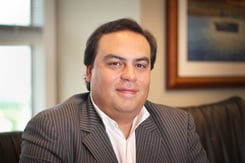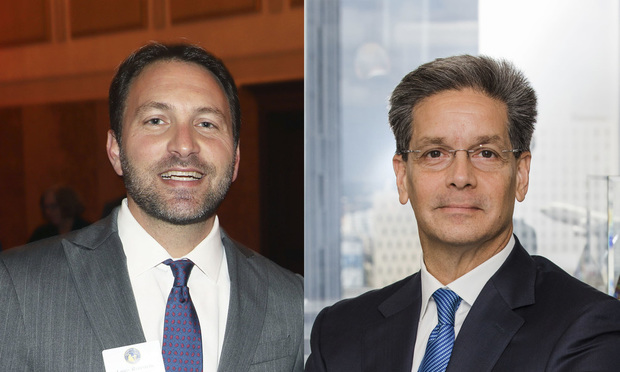A Miami lawyer is out from behind bars, as prisons across the country deal with the potential spread of the coronavirus. His and other attorneys for prominent inmates are requesting the release of their clients from these facilities, citing health concerns amid a global pandemic.
But some attorneys say it’s unfair for prominent inmates to secure releases.
Mark S. Scott, a former Locke Lord corporate partner, was successful in his bid for a humanitarian release.
On Monday, U.S. District Judge Edgardo Ramos ordered Scott’s release from a Miami lockup, to home incarceration, due to underlying health conditions that increased the ex-Big Law partner’s risk of contracting the coronavirus in jail.
 Mark Scott
Mark Scott
On the same day, another infamous lawyer made a similar request.
Michael Avenatti requested his release from a federal jail in New York, but U.S. District Court Judge James V. Selna in Santa Ana, California, denied that request.
Kelley Kronenberg partner Louis Reinstein, who litigates correctional health care matters, said the concern is that the virus could spread quickly among a prison or jail population.
“Intake is the first line of defense,” Reinstein said. “But medical providers rely on the inmates and often times we have inmates who get admitted into the jail and are not cooperating. They are violent, and they don’t allow for a proper intake.”
Cases without a proper intake due to a noncooperative prisoner are something that is generally not seen in other medical settings.
“Just because somebody is admitted through that first step of intake and there is a medical provider who does not get certain information,” Reinstein said, “it doesn’t mean they did anything wrong.”
William Barr, the United States attorney general, said in a virtual press conference last week that his office is concerned about the institutional setting. Barr said prisons are putting in place protocols to protect inmates and to avoid institutions from becoming “petri dishes.” These protocols may include an increase in home confinement.
Over the weekend, the first federal inmate died from the coronavirus at a Louisiana federal prison. At least five other prisoners have tested positive for the virus there. As of noon Tuesday, 28 federal inmates have tested positive for the coronavirus nationally, according to the Federal Bureau of Prisons.
In cases where a prisoner died under the government’s watch, Reinstein noted that while it would be easy to file a lawsuit, successfully prosecuting the lawsuit against the BOP or a medical provider would be far more difficult.
“It doesn’t mean negligence. It doesn’t mean a constitutional violation. It surely doesn’t mean deliberate indifference,” Reinstein said, “which is the standard for a federal civil rights action.”
Peter Prieto, a partner at Miami-based litigation boutique Podhurst Orseck, agrees. He said the facility must have done something negligent that caused a prisoner to contract the virus. But demonstrating causation because the inmate was in prison may be difficult to prove.
While there are concerns about the safety of federal prisons, Prieto is against having prominent prisoners with more high-powered lawyers secure releases just to avoid the coronavirus. The only valid reason for an early release, he said, would be a preexisting condition.
“Why are you special? Why are you different than any other inmate? Because frankly, you’re not,” Prieto said. “If you go to prison, you’re an inmate just like the others.”
NOT FOR REPRINT
© 2024 ALM Global, LLC, All Rights Reserved. Request academic re-use from www.copyright.com. All other uses, submit a request to [email protected]. For more information visit Asset & Logo Licensing.


 Louis Reinstein, left, and Peter Prieto, right.
Louis Reinstein, left, and Peter Prieto, right.





